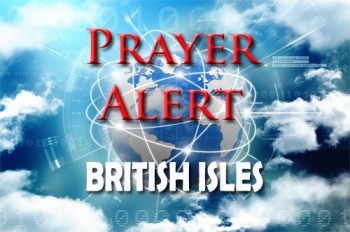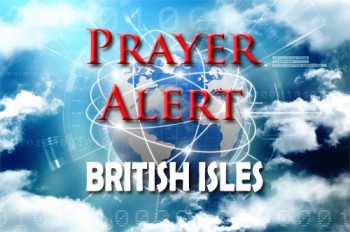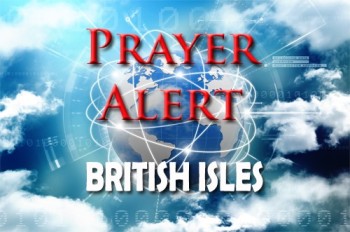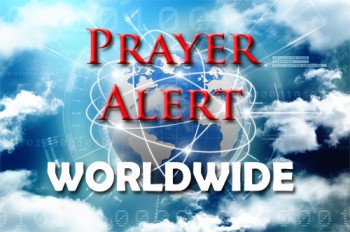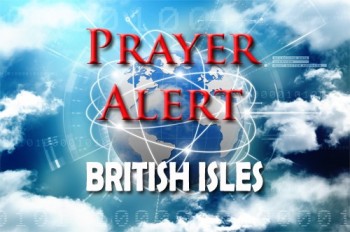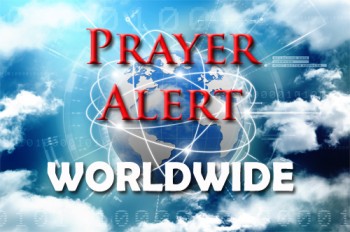Displaying items by tag: Discrimination
Australia: severe medical conditions affect success of visa applications
When Luca was born in Perth two years ago, his parents were devastated by his diagnosis of cystic fibrosis. Australia's strict immigration policies then compounded their distress by denying their permanent residency, deeming Luca a potential financial burden due to his medical condition. Australia, which prides itself as a ‘migration nation’, routinely rejects visas if medical costs exceed A$86,000 (£45,000) over ten years. Despite having lived in Australia for eight years and filling crucial job roles, Luca’s parents face the possibility of deportation – an example of the policy’s harshness. The government has defended the law, but it is surprising that its own immigration act is treated as exempt from its disability discrimination act. The immigration minister has mentioned the possibility of ministerial intervention for affected children, yet the process is often gruelling. Campaigners argue this policy is discriminatory and outdated, and are pushing for reform.
Kazakhstan: Christians need prayer and support
There are 4.9 million Christians in Kazakhstan in the mostly Muslim population. Since 2011, religious freedom has been restricted as government surveillance and control increases. When somebody becomes a Christian, they risk being locked up by their families, kept from other Christians, verbally and physically abused or cut off from family, community and financial support. The authorities monitor and raid meetings of Christian converts and may arrest and imprison their church leaders. The risk of being forcibly married to a Muslim remains an ongoing risk for women who become Christians|: in rural areas, they are sometimes kidnapped for this purpose. Christian men are pressured by the state, and in the army, a highly controlled environment. It is difficult for Christians to earn a living; authorities can demand bribes from Christian business owners, and some keep their faith a secret. Converts and church leaders particularly risk losing employment.
Comedy show cancelled over gender views
A comedy show in Edinburgh featuring the Father Ted writer and comedian Graham Linehan has been cancelled. The venue pulled the gig because it did not support the comedian’s views, which did not align with their overall values. Linehan has been an outspoken critic of transgender self-identification. He urged the venue to reconsider its decision and suggested the cancellation might be unlawful. He has responded on X, formerly Twitter, by challenging the venue to explain which of his views it found offensive. He posted, ‘It sounds like discrimination on the grounds of my legally protected beliefs.’ The organisers of his gig are looking for an alternative venue. Earlier this year another Edinburgh venue cancelled a scheduled festival appearance by SNP MP Joanna Cherry because staff were not comfortable with her views on transgender issues. However, they later apologised, admitting the cancellation was unlawful discrimination against Ms Cherry.
Down's syndrome and abortion law
Heidi Crowter is a woman with Down's syndrome who has previously challenged legislation allowing foetuses with the syndrome to be aborted up until birth. But judges at the Court of Appeal decided the Abortion Act did not interfere with the rights of the living disabled. Heidi is taking her case to the European Court of Human Rights ‘because it is downright discrimination that people with disabilities are treated differently. Disabled people are valued equally after birth but not in the womb.’ In England, Wales and Scotland there is a 24-week time limit for abortion, unless there is a substantial risk that the child would suffer from physical or mental abnormalities, including Down's syndrome. If Heidi’s appeal is successful, it would not only have implications for the UK, it would set a legal precedent for all 46 member countries of the Council of Europe.
Lebanon: discrimination against refugees rises
A refugee agency in Lebanon noted discrimination and violence against Syrian refugees rose sharply recently, with more confrontations at bakeries where refugees often have to wait for bread behind Lebanese citizens. Rawan Haddad, of Tent Schools International, said that the refugees’ situation is sometimes better than most Lebanese. Nations provide basic support and limited facilities for refugees, but Lebanese below the poverty line have no support. There are shortages of bread, flour, and medicine. People don’t make enough to buy what they need, and the government won’t help. With these concerns in mind, Lebanese officials have now announced they plan to repatriate refugees back to Syria, but the problem is that European countries will not agree to that course of action.
Australia: proposed law to allow ‘discrimination’
On 25 November prime minister Scott Morrison introduced a controversial Religious Discrimination Bill, which will allow faith-based organisations to prioritise hiring and enrolment of people from their faith. The bill, tabled just months before next year’s election, is seen as an attempt to woo votes from religious citizens, as Mr Morrison is a Pentecostal Christian. When introducing the bill to parliament, he said it would protect those who expressed their religious faith outside the workplace as long as it did not cause financial damage to their employer. ‘People should not be persecuted or vilified because their beliefs are different from someone else’s. Australians shouldn’t have to worry about offending an anonymous person on Twitter.’ The bill will be put to vote in the lower house next week, but is unlikely to pass into law before the elections.
Christian nurse suing NHS trust
Mary Onuoha, an operating theatre specialist at Croydon University Hospital, was bullied and pressured to remove her cross necklace while on duty. Mary says she was forced out of the job she loved after working there for 18 years. She is challenging the NHS trust for harassment, victimisation, and constructive unfair dismissal as they had breached her freedom to express her faith under the European Convention of Human Rights and the Equality Act. In August 2018 bosses ordered her to remove the cross which was a breach of NHS dress code and a ‘health risk’ to her and to patients. Mary argues that the dress code was applied inconsistently. Other nurses were not asked to remove jewellery, hijabs, saris, turbans or religious bracelets. Also Mary wore several lanyards at the same time with no anti-strangle clasps, yet her cross supposedly posed ‘a risk of injury or infection’.
Japan: huge army of under-employed ex-housewives
There are many smart, educated women who could drive Japan out of its economic slump to a stunning economic recovery, but the rigid hiring system and male-dominated leadership block women from the best-paid jobs. Japan risks becoming a nation of bored housewives with university degrees. Parliament declared it would significantly increase the number of women in leadership by 2020, but the deadline quietly came and went without getting close to its target. Critics believe the aim had little to do with women thriving at work and more to do with an acute need for workers. The working-age population has been rapidly shrinking since the 1990s. Many women are stuck in part-time or dead-end roles which pay 40% lower than men. Companies are reluctant to have more women in their workforces, but the drive for change could come from international companies hiring graduates with gender equality.
Discrimination against evangelists
Police are appealing for information after 39-year-old Hatun Tash suffered a knife attack at Speakers' Corner in London on 25 July. The former Muslim, now a Christian speaker, was treated by the ambulance service then taken to a central London hospital. See Meanwhile Christian street preacher Joshua Sutcliff who was fined and prosecuted for evangelising in London on Good Friday 2020 was acquitted recently, but another judge upheld a Covid fine against Christian preacher Andrew Sathiyavan, who was out for the same reasons the same weekend. The Christian Legal Centre were pleased that Joshua was acquitted but are concerned that prosecution came this far. ‘We are seeing a lot of inconsistencies from the police and the judiciary in these cases. Christians have been easy targets during the pandemic while other groups gathering in significant numbers have not been targeted by the police.’
Australia: closing the gap for Aborigines
A documentary about a ten-year-old Aboriginal boy's experience in school has reignited the debate about Australia's failure to give indigenous children a good education and a fair start in life. Australia's ‘national shame’ was recognized in 2008, and the government pledged to ‘close the gap’ for indigenous people in terms of life expectancy, child mortality, education and employment. By 2020 most of the seven targets had not been met. Seventeen new targets have now been set, in partnership with Aboriginal and Torres Strait Islander groups. Currently young indigenous people are 17 times more likely to be jailed than non-indigenous counterparts (43 times more likely in the Northern Territory). A young indigenous man is more likely to be in prison than university. In Aboriginal town camps there are days with no milk, and children eat breakfast at school. Some nights there is no electricity, so children play I-spy under the stars.


